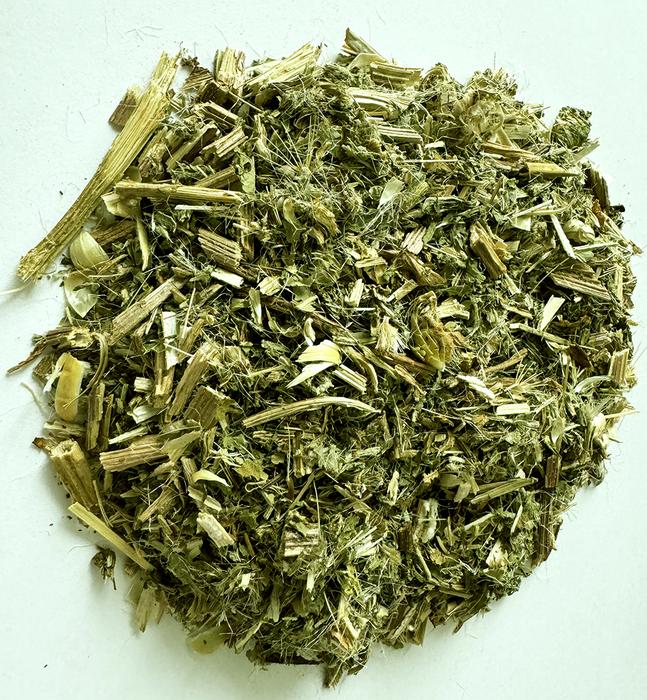Blessed thistle (Cnicus benedictus) is a plant in the family Asteraceae and also grows in our climate. For centuries, it has been used as a medicinal herb as an extract or tea, e.g. to aid the digestive system. Researchers at the Center for Pharmacology of University Hospital Cologne and at the Faculty of Medicine of the University of Cologne have now found a completely novel use for Cnicin under the direction of Dr Philipp Gobrecht and Professor Dr Dietmar Fischer. Animal models as well as human cells have shown that Cnicin significantly accelerates axon (nerve fibres) growth. The study ‘Cnicin promotes functional nerve regeneration’ was published in Phytomedicine.

Credit: Dietmar Fischer
Blessed thistle (Cnicus benedictus) is a plant in the family Asteraceae and also grows in our climate. For centuries, it has been used as a medicinal herb as an extract or tea, e.g. to aid the digestive system. Researchers at the Center for Pharmacology of University Hospital Cologne and at the Faculty of Medicine of the University of Cologne have now found a completely novel use for Cnicin under the direction of Dr Philipp Gobrecht and Professor Dr Dietmar Fischer. Animal models as well as human cells have shown that Cnicin significantly accelerates axon (nerve fibres) growth. The study ‘Cnicin promotes functional nerve regeneration’ was published in Phytomedicine.
Rapid help for nerves
Regeneration pathways of injured nerves in humans and animals with long axons are accordingly long. This often makes the healing process lengthy and even frequently irreversible because the axons cannot reach their destination on time. An accelerated regeneration growth rate can, therefore, make a big difference here, ensuring that the fibres reach their original destination on time before irreparable functional deficits can occur. The researchers demonstrated axon regeneration in animal models and human cells taken from retinae donated by patients. Administering a daily dose of Cnicin to mice or rats helped improve paralysis and neuropathy much more quickly.
Compared to other compounds, Cnicin has one crucial advantage: it can be introduced into the bloodstream orally (by mouth). It does not have to be given by injection. “The correct dose is very important here, as Cnicin only works within a specific therapeutic window. Doses that are too low or too high are ineffective. This is why further clinical studies on humans are crucial,” said Fischer. The University of Cologne researchers are currently planning relevant studies. The Center for Pharmacology is researching and developing drugs to repair the damaged nervous system.
The current study received funding of around 1,200,000 euros from the Federal Ministry of Education and Research within the framework of the project PARREGERON.
Journal
Phytomedicine
DOI
10.1016/j.phymed.2024.155641
Method of Research
Experimental study
Subject of Research
Animals
Article Title
Cnicin promotes functional nerve regeneration
Article Publication Date
14-Apr-2024




